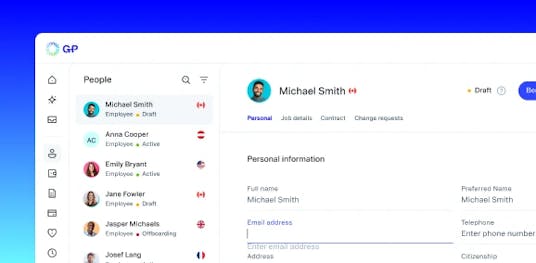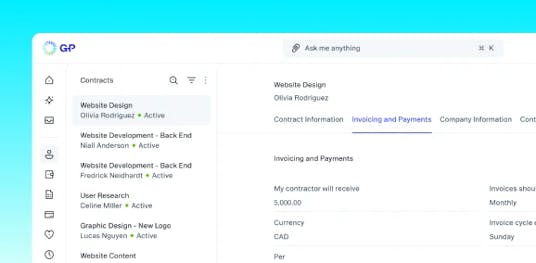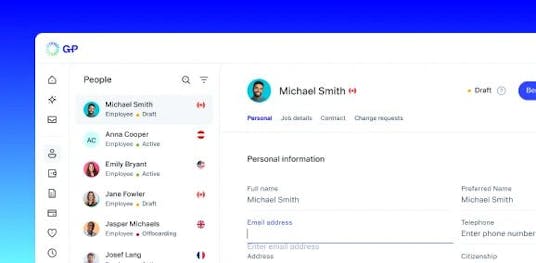In China, employer of record (EOR) products and services play a crucial role in complying with the country’s complex employment regulations. China EOR products and services are essential for any business aiming to establish a firm presence in the country. They ensure that employment processes, from hiring to termination, meet local legal requirements. This includes adhering to both national and regional regulations. AI-powered EOR services cover every aspect from legal employment contracts and managing payroll taxes to other compliance duties, thus ensuring seamless business operations.
By leveraging the expertise of an employer of record China, companies can successfully navigate diverse regulatory requirements, reducing legal risks. EOR support reduces the risk of non-compliance, enabling businesses to concentrate on their core activities and freeing them from the complexities of local legal and tax requirements. Additionally, hiring through a China EOR helps businesses ensure compliance.
Why use an employer of record (EOR) in China?
China's employment landscape is governed by a robust national framework, but the implementation of labor laws, social security contributions, and leave entitlements varies significantly by province and even city. This regional variation creates a complex compliance environment for foreign companies.
An EOR provider in China, such as G-P, simplifies this complexity. We provide a legally compliant entity to hire employees on your behalf, managing all local HR tasks from drafting compliant employment contracts and processing payroll to administering benefits and navigating intricate termination procedures. Using an EOR allows you to access Chinese talent without establishing a local subsidiary, saving significant time and resources while ensuring full compliance with all regional regulations.
Employment contracts in China
A written employment contract is mandatory for all full-time employees. Employers must provide a signed contract within 1 month of the employee's start date. Failure to do so requires the employer to pay double the employee's monthly salary for each month without a contract, for up to 1 year. If no written contract is provided for a full year, the relationship is automatically deemed an open-ended employment contract.
It is legally required for employment contracts to include:
-
Employer and employee identification details
-
Contract term (fixed-term, open-ended, or project-based)
-
Job description and work location
-
Working hours, rest periods, and leave
-
Compensation details
-
Social insurance information
-
Workplace safety and health protection
It is best practice for both the offer letter and the employment contract to state all salary and compensation amounts in Chinese yuan (CNY).
Working hours in China
Under the Labor Law of the People's Republic of China, the standard workweek is 5 days, with a maximum of 8 hours per day and 44 hours per week. While office hours vary, a common schedule is 9 a.m. to 6 p.m. with a lunch break.
Public holidays in China
China observes 7 official public holiday periods, which amount to 11 national paid holidays each year. The government often adjusts the surrounding weekends to create longer holiday blocks.
-
New Year's Day: 1 day
-
Spring Festival (Chinese New Year): 3 days
-
Tomb-Sweeping Festival: 1 day
-
Labor Day: 1 day
-
Dragon Boat Festival: 1 day
-
Mid-Autumn Festival: 1 day
-
National Day: 3 days
It is a market norm to offer additional flexibility around the Spring Festival to accommodate employee travel.
Paying taxes in China
Understanding the Chinese tax system is necessary for any company investing in the region. Statutory benefits in China include 5 insurances for medical insurance, pension, workers’ compensation, unemployment insurance, and parental benefits. Contribution amounts differ by region. Contribution amounts vary by province and by the employee’s income bracket.
Leave entitlements in China
Vacation days in China
Statutory paid annual leave is based on an employee's cumulative years of service with all employers, not just the current one.
-
1 to <10 years of service: 5 days
-
10 to <20 years of service: 10 days
-
20+ years of service: 15 days
If an employer prevents an employee from taking their entitled leave, they must pay 300% of the employee's daily wage for each unused day. In practice, many multinational companies offer 2 to 4 weeks of paid vacation to attract and retain professional talent.
China sick leave
Managing sick leave efficiently is fundamental in maintaining workforce morale. Employees are entitled to paid sick leave for non-work-related illnesses or injuries. The leave period ranges from 3 to 24 months, determined by their years of service with the current employer and their total cumulative service. During this leave, employees receive a percentage of their salary (typically 60% to 100%) based on local regulations and their length of service.
Parental leave in China
Parental leave entitlements in China vary significantly by province. Adhering to these provincial differences is key to smooth HR operations. Utilizing an EOR can assist businesses in understanding provincial differences.
-
Maternity leave: The national standard is 98 days of paid leave. However, most provinces add 30 to 90 additional days, making the total leave 128 to 188 days or more in many locations. Leave is extended by 15 days for each additional child in a multiple birth.
-
Paternity leave: Varies by location, typically ranging from 7 to 30 days.
-
Parental leave: Most provinces offer 5 to 15 days of leave per year for each parent until the child is 3 years old.
Compensation and benefits in China
Social security and housing fund
Employers and employees must contribute to China's mandatory social security system, known as the ""Five Social Insurances and One Housing Fund"" (五险一金). Contribution rates and the salary base caps are set locally and vary by city. The system includes:
-
Pension fund
-
Medical insurance
-
Unemployment insurance
-
Work-related injury insurance
-
Maternity insurance
-
Housing fund (to subsidize rent or property purchase)
Employer contributions for these mandatory benefits can add approximately 25% to 40% to the total cost of employment on top of the gross salary, depending on the city and the employee's income.
Health insurance in China
Basic health and pension insurance is provided through the national system. However, some employers provide supplementary health insurance to their employees.
Bonuses in China
While not required by law, a 13th-month salary or an annual performance bonus is a strong market norm and expected by most professional employees in China. Commission plans are also common for sales roles.
Termination and severance in China
Terminating employment in China is complex and requires a legally permissible cause. Unilateral termination by an employer is extremely difficult and carries a high risk of legal challenges. An agreed probation period can be established in the employment contract, with a maximum length of 6 months for an open-ended contract. During probation, termination requires 3 days' notice. After probation, a 30-day notice period is required for valid termination.
Employees are protected from termination during pregnancy, maternity leave, and the breastfeeding period. Severance pay is required for most terminations and is calculated based on the employee's length of service with the employer.
Why G-P?
G-P EOR is the award-winning, AI-powered SaaS platform that empowers ambitious companies to build global teams. Onboard, manage, and pay top talent in over 180 countries in minutes, bypassing the typical time, cost, and complexity of local entity setup. G-P EOR is the preferred partner for leading HCM, PEO, and payroll platforms. Bring your workforce data together in one place to maintain existing workflows while guaranteeing consistent and accurate data across your integrated systems.
Request a proposal today to learn more.




















